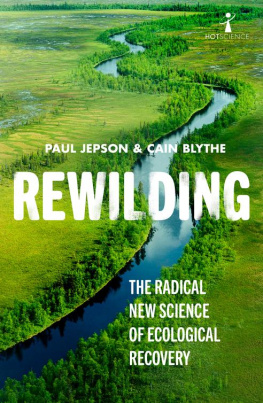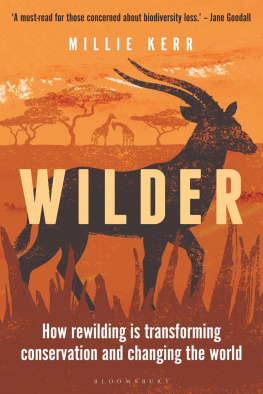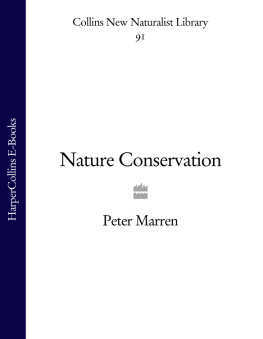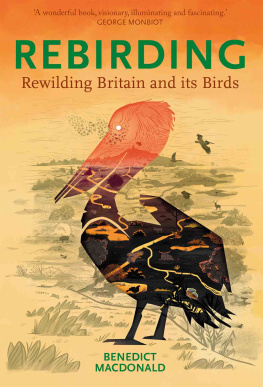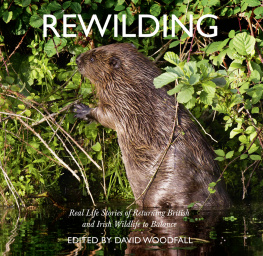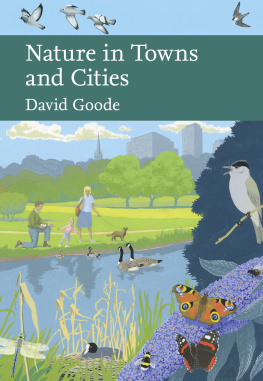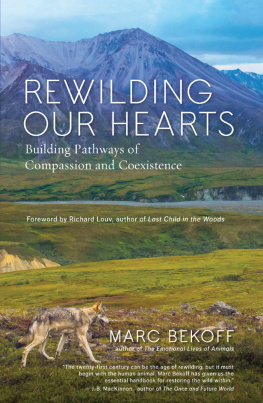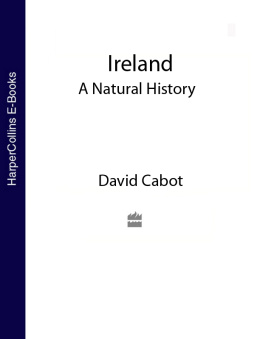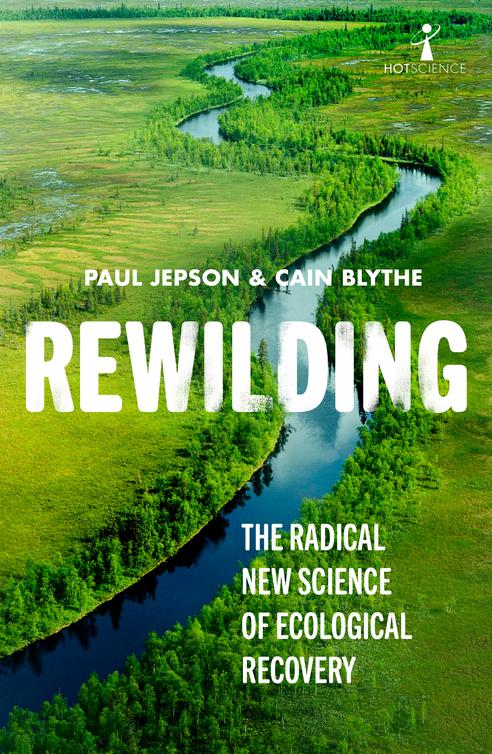
i
Hot Science is a series exploring the cutting edge of science and technology. With topics from big data to rewilding, dark matter to gene editing, these are books for popular science readers who like to go that little bit deeper
AVAILABLE NOW AND COMING SOON:
Destination Mars:
The Story of Our Quest to Conquer the Red Planet
Big Data:
How the Information Revolution is Transforming Our Lives
Gravitational Waves:
How Einsteins Spacetime Ripples Reveal the Secrets of the Universe
The Graphene Revolution:
The Weird Science of the Ultrathin
CERN and the Higgs Boson:
The Global Quest for the Building Blocks of Reality
Cosmic Impact:
Understanding the Threat to Earth from Asteroids and Comets
Artificial Intelligence:
Modern Magic or Dangerous Future? ii
Astrobiology:
The Search for Life Elsewhere in the Universe
Dark Matter & Dark Energy:
The Hidden 95% of the Universe
Outbreaks & Epidemics:
Battling Infection From Measles to Coronavirus
Rewilding:
The Radical New Science of Ecological Recovery
Hacking the Code of Life:
How Gene Editing Will Rewrite Our Futures
Origins of the Universe:
The Cosmic Microwave Background and the Search for Quantum Gravity
Behavioural Economics:
Psychology, Neuroscience, and the Human Side of Economics
Hot Science series editor: Brian Clegg
Paul Jepson is Nature Recovery Lead with Ecosulis Ltd and was until recently a director of Oxford Universitys MSc course in Biodiversity, Conservation and Management. He has published several scientific and popular articles on rewilding policy and action philosophy, and is a regular contributor to TV and radio. He is currently a member of Rewilding Europes supervisory board.
Cain Blythe is Managing Director of Ecosulis Ltd and specialises in habitat restoration, particularly through the adoption of natural regeneration techniques, nature recovery and the use of technology in conservation. He is currently contributing to a number of monitoring trials relating to beaver releases in England and Wales.
This book is inspired and informed by the many rewilding practitioners and progressive scientists we have met over the years, and by the enthusiasm and contributions of young conservationists seeking to shape a more hopeful and ambitious approach for conservation in the 21st century. In particular we would like to thank Wouter Helmer, Richard Ladle, Marc Macias-Fauria, Yadvinder Malhi, Christopher Sandom, Frans Schepers, Jens-Christian Svenning, Frans Vera, Charlie Burrell, Daniel Allen, Alan Feest and Sara King for the many stimulating conversations and field visits over the years. Our special thanks to Wouter Helmer and Richard Ladle for reviewing full drafts of the book and to our wives, Susanne Schmitt and Emily Blythe, for their support and many constructive inputs to draft chapters.
Lastly, we hope that this book will help provide an overview of the science that underpins the idea of rewilding and encourage readers to contribute in whatever way they can to the shaping of this new and ambitious conservation agenda.
This century is witnessing a fundamental reassessment of the science and practice of nature conservation. An exciting and unsettling body of new thinking is emerging, inspired by the realisation that we have internalised ecological impoverishment in our science, culture and institutions. This impoverishment is a consequence of the syndrome of shifting baselines, where each generation assumes the nature they experienced in their youth to be normal and unwittingly accepts the declines and damage of the generations before.
A generation ago, at the time of the 1992 Rio Earth summit, ecologists and conservation biologists succeeded in raising the fate of biodiversity to the top of the environmental policy agenda. Their science was rooted in the comparative traditions of natural history and the ecology of communities of species and strongly influenced by the protectionist worldviews of 1970s environmentalism. A focus on the components of nature species, sites and habitats translated into clear and powerful law and policy aimed at protecting nature from the wounding ways of humanity. Framing nature as units or components enabled biodiversity targets to be set, and the development of an empirical and international conservation science.
The science of biodiversity, and the institutions it spawned, assumed that the ecosystems that were present at the beginning of the industrial era represented the natural baselines that should be conserved. Indeed, at this time it was considered appropriate that such baselines provided the foundations upon which biodiversity was to be protected and measured. This made intuitive sense as, after all, the tropical rainforests, African savannas and pastoral landscapes of Europe all supported diverse and flourishing natures that were disappearing fast in a globalising world, characterised by increasing population and resource demands.
By the turn of the millennium, biodiversity science had become accomplished and influential. But, like progressive rock in the 1970s, it has also become a little self-serving and out of touch with trends in science and wider society. In particular, the relentless telling of stories of biodiversity decline and an impending sixth-extinction crisis, combined with newer anxieties over climate change, has led to a growing sense of despondency within the conservation movement. Many have started to lose hope and question whether they still want to devote their lives and careers to lessening harm and fruitlessly cataloguing the end of nature.
Then in 2005 and 2006 the prestigious journals Science and The American Naturalist published papers proposing audacious new agendas for conservation science. In the first, titled Pleistocene Park: return of the mammoths ecosystem, Sergey Zimov pointed out that up until 10,000 years ago, much of the Arctic was covered by steppe grasslands, created and maintained by vast herds of mega-herbivores. He argued that their disappearance could be attributed to human hunting pressure, and that the mammoth steppe ecosystem can and should be restored as a strategy to reduce carbon emissions from the thawing yedoma (permafrost) soils. The second paper, authored by a group of US conservation scientists led by Josh Donlan, was Pleistocene Rewilding: an optimistic agenda for twenty-first century conservation. This group pointed out that assemblies of large vertebrates produce complex food webs, and that continental-scale declines of megafauna over the millennia have resulted in downgrading of nature. They outlined an agenda to restore ecological functions through the reassembly of the remaining large herbivore guilds, such as elk, bison, and feral horses and even introduced species from different faunal regions, such as camels. The belief was that such surviving wild herbivores could do the ecological job of lost species and that this rewilding was a better alternative than doing nothing or relying on the ageing and failing protectionist approach of the 1970s.
To continue the music analogy, it was as if punk rock had hit the conservation science scene. The agendas introduced in these papers were brash, energising, novel and controversial. They signified a desire to shake up the present but also expressed an ambition to shape a new and inspiring future. The Pleistocene rewilding concept was robustly criticised by some in the conservation establishment, who accused the authors of opening a Pandoras box and proposing the creation of Frankenstein ecosystems. Yet, the arguments in both papers gave new expression to a scientific riff called functionalism which has subsequently become the scientific basis of rewilding practice.

